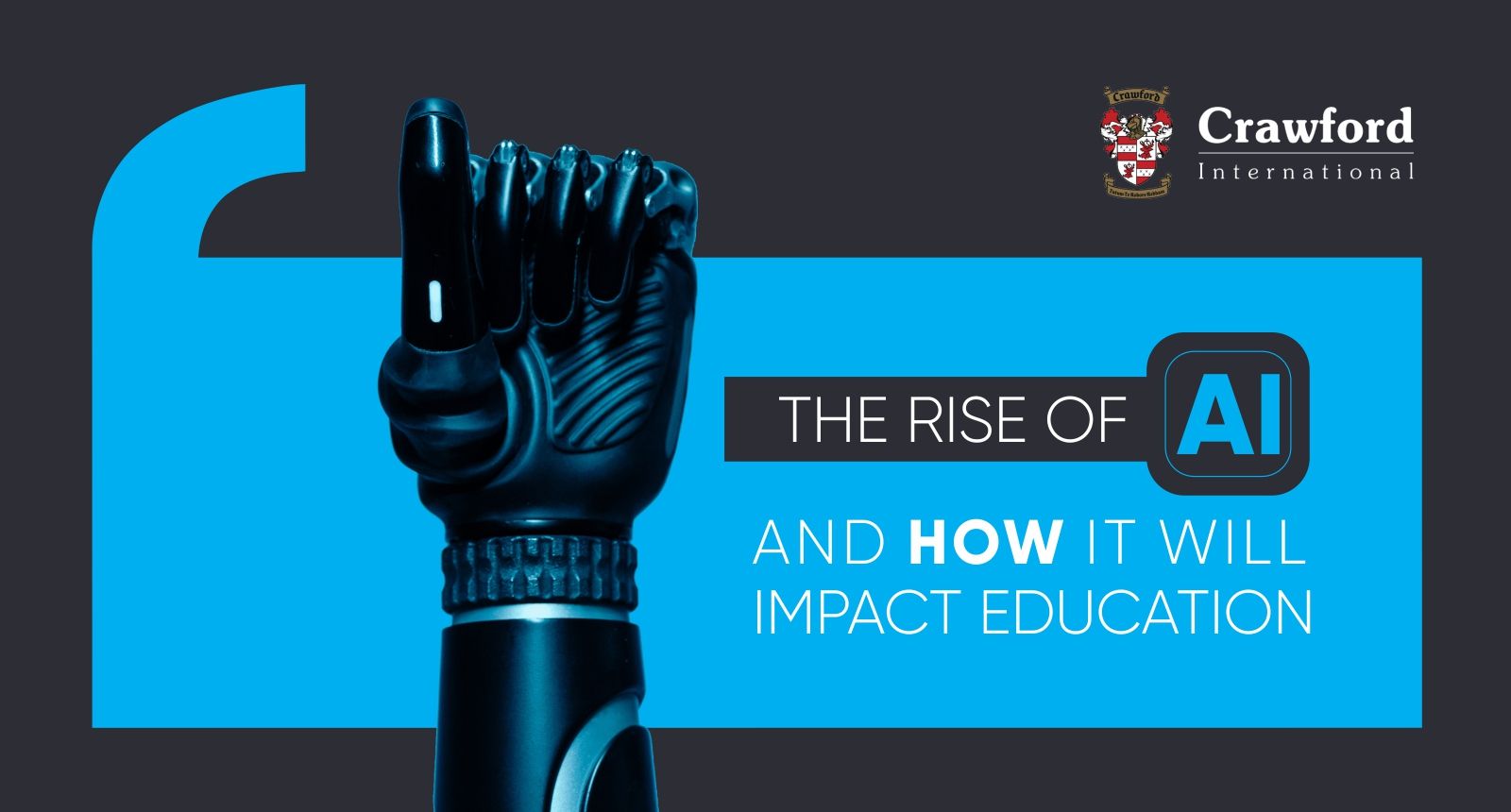AI in Education
February 17, 2023
As a parent, it may seem that the only ones listening to you in your house are Siri and Alexa!

The interesting thing though is that your kids are listening to them! Welcome to the world of artificial intelligence – in our homes, in the world around us and most certainly in our schools.
But what is Artificial Intelligence, aka AI? According to TechTarget, Artificial Intelligence is the simulation of human intelligence processes by machines, especially computer systems.
In an age of digital disruption, technology and artificial intelligence are already woven into the fabric of everyday life. We pay using our phones, switch on appliances remotely and open Apps using our faces. Throw in two years of building and nurturing relationships via a computer screen, and the reality of the future becomes blatantly obvious. We can see how this is impacting the world around us but how is it impacting our schools?
AI and education?
Although the integration of AI in education was slow initially, the pandemic fast-tracked its adoption, and it’s now used to enhance student learning by personalising course work, speeding up student-teacher interaction and response times, task automation and learner evaluation and grading.
AI is mitigating lengthy, painful tasks by automating processes. AI is creating and analysing coursework using streamlined, intelligent methodology via software applications that are far more cost-effective and have the capacity to adapt to an individual’s learning style, interactively.
The opportunities for AI applications in education are powerful and endless. Administrative assistance, task automation, interactive learning and automated grading applications are a few that are already improving traditional education methods.
Who will benefit most from AI - students or educators?
The short answer is both.
AI is real-time. Research shows that students expecting to be tested on their knowledge or skill level often experience significant stress levels. Teachers can use AI to ubiquitously test and assess students and adjust the learning environment to suit the individual and enhance their overall performance.
AI can help identify areas of weakness that require intervention. It can also customise a student’s learning experience to stimulate or improve a student’s level of knowledge in a particular subject or area of learning or define a student’s progress plan based on goals or outcomes.
Recommended AI applications can be useful in suggesting tools, tasks or activities that help students improve in specific areas of their learning.
For teachers, AI is a game changer when marking papers. Not only the multiple choice or selection type assessments but natural language AI tools can mark essays and other written work too.
Advantages of AI
The advantages of using AI in education are infinite. Traditionally onerous tasks are done within milliseconds, and processes are based on data and results-driven.
Today’s generations are born digital natives. They are exposed to technology from birth. Statistics show that 42% of Gen Z are on TikTok teaching themselves new skills on a daily basis, according to McCrindle.
The way they learn (and the pace at which they learn) is changing, and AI is leading the charge. Schools have integrated personalised learning, task automation and smart, interactive content creation into their curriculum and the results have been very positive.
Disadvantages of AI
We are constantly trying to get our kids off screens and AI does mean more time in front of them! It can also reduce social interaction and human experience, which are some of the disadvantages of AI in education.
Protecting a student’s privacy is another major concern in the age of the internet, and how sharing data with AI organisations, engineers, and developers is also an area of discussion.












